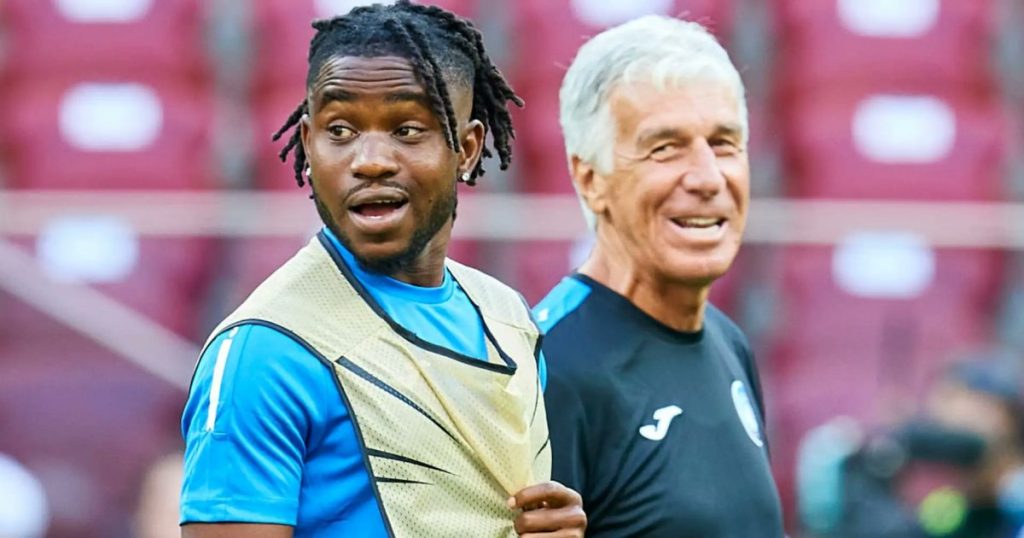The relationship between Atalanta manager Gian Piero Gasperini and Super Eagles forward Ademola Lookman became strained following a missed penalty in a crucial Champions League knockout playoff round match against Club Brugge. Lookman, who had made an immediate impact after coming on as a substitute with Atalanta trailing 3-0, scoring just 36 seconds later, failed to convert a penalty that could have potentially shifted the momentum of the game. Gasperini’s subsequent comments, labeling Lookman as one of the worst penalty takers he had ever seen, ignited a public disagreement between the player and manager. Lookman took to social media to express his disapproval, characterizing Gasperini’s words as “deeply disrespectful.”
Gasperini’s post-match remarks ignited a controversy that extended beyond the immediate aftermath of the Champions League exit. The Italian manager’s blunt assessment of Lookman’s penalty-taking ability was perceived as unduly harsh and dismissive of the player’s contributions. While Gasperini’s intention might not have been to personally offend Lookman, his choice of words undoubtedly created an uncomfortable situation, particularly given the high-stakes nature of the match and the player’s efforts to salvage the game. The public nature of the exchange added fuel to the fire, prompting speculation about the state of their professional relationship and its potential impact on the team’s dynamics.
In the days following the incident, Gasperini attempted to clarify his stance during a pre-match press conference ahead of Atalanta’s Serie A clash with Empoli. He insisted that his intention was not to offend Lookman, acknowledging the Nigerian international’s “extraordinary impact” upon entering the game against Brugge. He expressed his desire for Lookman to develop into a reliable penalty taker, viewing it as an “additional scoring ability” that could further enhance the player’s offensive capabilities. While acknowledging Lookman’s immediate contribution, Gasperini also revealed his preference for De Ketelaere, the designated penalty taker, to have taken the crucial spot-kick. He suggested that a gesture of deference from Lookman to De Ketelaere would have been appropriate, highlighting a perceived breach of team etiquette.
Gasperini’s clarification, while seeking to downplay the severity of his earlier remarks, also underscored a fundamental difference in perspective between him and Lookman. The manager’s focus remained on tactical considerations and adherence to designated roles within the team, while Lookman’s reaction likely stemmed from a feeling of being unfairly singled out and publicly criticized. This difference in perspective, while not necessarily irreconcilable, highlighted the complexities of player-manager relationships, particularly in the high-pressure environment of professional football.
Adding another layer of intrigue to the situation, Gasperini hinted at a potential departure from Atalanta at the end of the current season or upon the expiry of his contract the following year. This revelation, seemingly unrelated to the Lookman incident, injected further uncertainty into the club’s future. Whether Gasperini’s departure would ultimately benefit both parties remained a subject of speculation, but it undoubtedly added a new dimension to the ongoing narrative surrounding Atalanta’s season.
The incident involving Gasperini and Lookman serves as a microcosm of the delicate balance between individual expression and team dynamics within professional football. While managers must make tactical decisions and maintain order within the squad, players are also entitled to a degree of autonomy and respect for their individual contributions. Striking this balance is a constant challenge, and the Gasperini-Lookman episode highlights the potential pitfalls when communication breaks down and public disagreements arise. Ultimately, the long-term impact of this episode on both individuals and the club as a whole will depend on their ability to navigate these challenges and find a way to move forward constructively.


